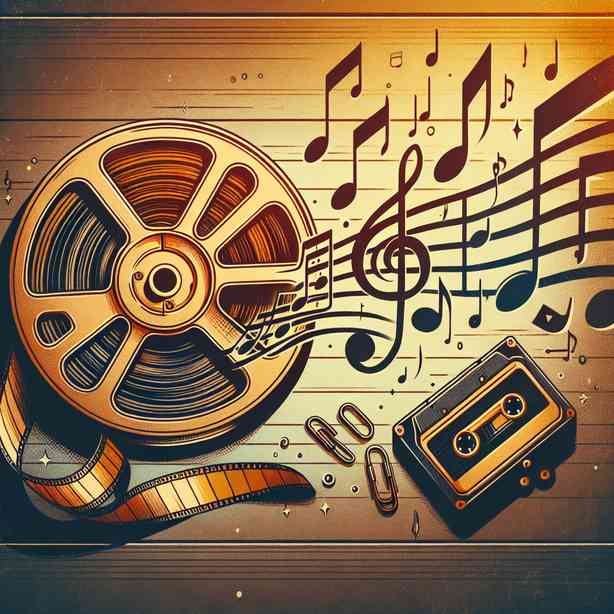
The impact of a soundtrack on a film cannot be underestimated. Soundtracks can elevate the narrative, evoke emotions, and leave a lasting impression on the audience. Some soundtracks have become iconic, synonymous with the films they accompany, transforming the way we experience cinema. In this exploration, we’ll delve into how soundtracks have changed films, examining notable examples and the emotional resonance they provide.
To start, let’s consider the role of music in cinema. Soundtracks serve several purposes: they set the tone, establish the mood, and enhance character development. A well-placed song or score can heighten the drama of a scene, create tension, or underscore the emotional weight of a moment. This connection between sound and storytelling can profoundly shape audience perception and engagement.
One of the most notable examples of a soundtrack transforming a film is the 1977 release of “Star Wars.” Composed by John Williams, the score is instantly recognizable and integral to the overall experience of the film. Williams’ use of leitmotif—assigning specific themes to characters or ideas—added depth to the storytelling, allowing audiences to connect with the characters on a more emotional level. The triumphant main theme of “Star Wars” captures the essence of adventure and heroism, while the darker motifs associated with Darth Vader evoke fear and conflict. Ultimately, the score has not only become a hallmark of the film but has also influenced the wider genre of science fiction and fantasy cinema.
Another example is the 1994 film “The Lion King,” featuring a soundtrack by Elton John and Tim Rice. The songs such as “Circle of Life” and “Can You Feel the Love Tonight” are not just integral to the plot but also elevate key emotional moments in the film. “Circle of Life” sets the stage for the story, introducing themes of connection and the cycle of life, while “Can You Feel the Love Tonight” serves to develop the romantic relationship between Simba and Nala. The soundtrack’s impact was so significant that it helped the film win two Academy Awards for Best Original Song and contributed to its legacy as one of Disney’s most beloved animated features.
The 1993 film “The Bodyguard,” featuring Whitney Houston’s iconic performance of “I Will Always Love You,” showcases how a single song can change the trajectory of a film. Originally a country song by Dolly Parton, Houston’s rendition transformed it into a powerhouse ballad that transcended the movie itself. The emotional depth of the song resonates with the film’s themes of love, sacrifice, and longing. As a result, the soundtrack not only became a commercial success but also turned the film, which may have otherwise been forgotten, into a cultural touchstone.
Moving beyond popular music, film scores also play a crucial role in shaping narratives. Take, for instance, Hans Zimmer’s work on “Inception” (2010). The film is renowned for its complex plot, and Zimmer’s score uses innovative sounds and techniques to complement the film’s exploration of dreams. The haunting track “Time” builds tension throughout the film, culminating in a powerful emotional release at the end. The music intertwines with the visuals, enhancing the audience’s connection to the story. Zimmer’s work illustrates how a score can serve as an additional layer of storytelling, guiding viewers through the intricate narrative structure.
Moreover, the success of a film can often be attributed to its soundtrack. Consider “Guardians of the Galaxy,” which features a mixtape of 1970s and 1980s hits. The soundtrack not only appeals to nostalgia but also plays a pivotal role in character development and world-building. Songs like “Hooked on a Feeling” and “Ain’t No Mountain High Enough” are essential to establishing the film’s tone and humor. This blend of classic tracks with a contemporary narrative creates a unique viewing experience, allowing audiences to engage with the film on multiple levels.
The collaborative relationship between filmmakers and composers can lead to innovative soundtracks that shape films in groundbreaking ways. In recent years, films like “Black Panther” have illustrated the importance of cultural representation in music. Composer Ludwig Göransson’s score, mixed with songs featuring artists like Kendrick Lamar, provides a rich aural tapestry that complements the film’s themes of identity and heritage. The soundtrack’s success helped establish “Black Panther” as not only a cinematic triumph but also a cultural phenomenon, resonating with diverse audiences.
In discussing the transformative power of soundtracks, it is worth noting the nostalgia factor associated with music. Songs from the past can elicit powerful emotional responses, making viewers feel a connection to the characters and story. For instance, in “The Great Gatsby” (2013), the soundtrack curated by Jay-Z blends modern music with the Roaring Twenties aesthetic, allowing contemporary audiences to appreciate the film’s historical context while still feeling relatable. The juxtaposition of eras invites viewers to engage with the narrative in a unique and personal way.
In summary, the soundtracks that accompany films often serve as a powerful narrative force, enhancing emotional engagement and shaping audience perceptions. From John Williams’ iconic scores to contemporary soundtracks that blend genres and eras, the relationship between music and film is undeniable. The right soundtrack can elevate a film from an ordinary viewing experience to a memorable journey that lingers long after the credits roll. This exploration underscores the significance of soundtracks not just as background music but as integral components of storytelling that resonate deeply with audiences.
Ultimately, soundtracks can transform how we experience a film, creating a deeper connection to the characters, plot, and themes presented on screen. The next time you watch a film, pay attention to the music; you may find it changes your perception of the story in profound ways. Whether through iconic scores or carefully curated soundtracks, music continues to play a vital role in the evolution of cinema, and the films that we cherish often owe part of their success to the transformative power of their soundtracks.


